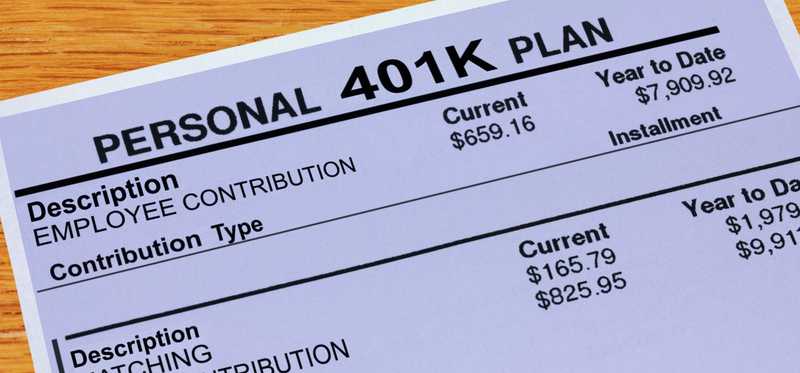The 13 Most Important Retirement Decisions You’ll Ever Make

The 13 Most Important Retirement Decisions You’ll Ever Make
Start now and you’ll be set for the rest of your life
Retirement itself is a very new idea. For most of history, we “worked” until we died. Times have changed -- people are living for decades after leaving the workforce. We aren’t hard-wired to plan for this... and it shows.
In order to make sure you don’t hit your mid-60s facing an inescapable crisis, you need to be proactive. Here are the 13 most important decisions you can start making right now to secure a comfortable retirement.
Previous
Next

1. Decide to make retirement a priority
Albert Einstein believed compound interest was the universe’s most powerful force for a reason: over time it can work wonders. The sooner you decide to make retirement a priority, the more time the force will work in your favor.
Consider this: Person A invests $100 at age 20, and it grows at (inflation-adjusted) 7% per year. Person B invests 10 times as much -- $1,000 -- at age 60 and it grows at the same rate. When these two reach 65, even though Person A’s investment was much smaller, she has $2,100 versus Person B’s $1,400. The sooner you start, the better -- and it’s never too late.
Previous
Next

2. Decide to max out that employer match
There’s no such thing as a free lunch, but an employer match in your 401(k) or 403(b) is the closest thing you’ll ever get. According to Vanguard, the median employer is willing to match up to 4% of your income in retirement plans. And a substantial minority -- 16% -- of plans go as high as 6% or more.
Do what you can to take full advantage of this benefit, and be sure to invest it in low-fee ETFs.Previous
Next

3. Decide what your “Enough” level is
This step is just as much psychological as it is financial -- but no less important. The two most important factors in your financial life are your income (from wages and investments) and your expenses. Beyond meeting your basic needs, you have full control over those expenses. This level will change with time and life circumstances -- like starting a new family -- but its important to constantly calibrate.
Doing the tough work of asking what you really need to be happy on a daily basis will pay huge dividends: not only will your expenses drop, the amount of money you have left over increases. This lowers what you need to retire, and shortens the amount of time you need to reach that goal.Previous
Next

4. Decide to pay off high-interest debt, secure your emergency fund, and start investing the difference
Once you’ve decided on your level of enough, you need to start investing the extra money that’s left over at the end of each month. Once you’ve paid off any high-interest debt and set up an emergency fund, it’s time to start investing. You can choose to use robo-advisers like Wealthfront if you want a hands-off approach, or choose individual stocks if you’re willing to do more research.
Previous
Next

5. Explore your “core pursuits”
Wes Moss -- host of Money Matters radio show and author of You Can Retire Earlier Than You Think -- has done some interesting research. The happiest retirees report entering retirement with an average of 3.6 “core pursuits.” Unhappy retirees have less than two.
What’s a core pursuit? It’s any activity that’s intrinsically rewarding -- gardening, coaching, reading, and time with family would all qualify. The key to Moss’ finding is that the importance of having these pursuits were shown across income levels: poor retirees with lots of core pursuits were happier than rich ones with few. Devote time in your 30s, 40s, and 50s to nourishing these pursuits.
Previous
Next

6. Decide where you want to live in retirement
As you approach retirement, where to live becomes a key decision. There are lots of considerations: the tax rate for social security in your state, whether or not you should downsize, and if you need to make accessibility accommodations.
But don’t overlook softer variables like proximity to family and friends. Over time, this has a bigger effect on your day-to-day happiness than the dollars and cents of the above considerations.
Previous
Next

7. Consider buying long-term care insurance
One of the biggest concerns retirees have is paying for medical expenses. And nothing can sap your nest egg as quickly as long-term care (LTC) facilities. While LTC insurance can be expensive, it provides an important safety net: Medicare doesn’t cover most of the costs associated with LTC facilities.
If you can afford to pay for LTC insurance without significantly cutting back on necessary expenses, it’s worth considering paying the hefty premiums to avoid even more massive bills down the road.
Previous
Next

8. Decide on a retirement budget and give it a test run
Before retiring, it’s worth coming up with a budget and seeing how well you can stick to it. Remember, every individual is different, but lots of expenses will actually go down in retirement.
See if a combination of Social Security, pensions, part-time work, and following the 4% rule with your nest egg will all combine to cover your costs, and how much breathing room you might have.Previous
Next

9. Decide when to retire
There are more variables that factor into this decision that we can cover here. They include whether or not your like your job, what your health is like, the state of your finances, and if there are other pursuits you’d like to spend time on outside of your primary employment.
You can start taking money out of your retirement accounts (IRAs) beginning at age 59-and-a-half without penalty. And the decision to retire need not be all-or-nothing: many retirees downshift their work schedules slowly to adjust to “retired” life.
Previous
Next

10. Decide when to claim Social Security
This decision is usually synonymous with choosing when to retire. There’s no rule, however, that you need to claim Social Security when you stop working full time -- or visa versa. Because most Americans don’t have enough saved to make ends meet without Social Security, they are one in the same.
But because you have made the previous nine decisions already, you might have more wiggle room. Importantly, every year you delay taking Social Security, your monthly benefit increases 8%. And those increases are locked-in and guaranteed -- technically, the same can’t be said for your nest egg’s returns. And if you were the primary breadwinner, delaying social security can also increase spousal benefits both while you’re alive and after you pass away.Previous
Next

11. Choose a Medicare plan
You can sign up for standard Medicare coverage at age 65. Technically, this includes Medicare Part A -- hospital and hospice care, and Medicare Part B -- doctors visits, preventative care, and “medically necessary services.”
But then you must decide if you want a Medicare Part C -- or Medicare Advantage -- plan, which provides comprehensive coverage. If not, you might consider signing up for a Medicare Part D plan for prescription drugs. These decisions can be confusing, especially because Part C and Part D plans are offered through private insurance companies. Be sure to consult your healthcare and retirement planning specialists to make the best decision for you and your family.Previous
Next

12. What will your goals be in retirement?
This gets back to the earlier decision about “core pursuits.” According to a 2016 Merrill Lynch/Age Wave report, retirees who were active in carving out their newfound leisure time were the happiest. Instead of being a time of less activity and slow decay, many retirees reported feeling rejuvenated by their newfound free time.
Something as simple as writing down three goals for your first year in retirement can work wonders in giving your time structure, purpose, and meaning. Of course, these goals will change over time -- the important thing is devoting time to exploring them and following through.
Previous
Next

13. Setting up a will
No one wants to think about it, but it’s a reality we all have to face: we don’t live forever. By creating a will and setting up power-of-attorney should you become incapacitated, you do a huge service to your family and friends: they’ll know your end-of-life wishes, you’ll eliminate the possibility of wrangling over what you’ve left behind, and you have the chance to leave a legacy that contributes to the livelihood of your family or community for decades to come.
Previous
Next

A great problem to have
This might seem like a lot to consider. And it is. But really it's a good problem to have. A century ago, the idea of living for two or three decades without having to work would have seemed like a fairy tale. Today, it’s a very real possibility. In order to take full advantage, it’s important to plan ahead. It’s never too late to get started, so start making these decisions today!
The Motley Fool has a disclosure policy.
Previous
Next
Invest Smarter with The Motley Fool
Join Over Half a Million Premium Members Receiving…
- New Stock Picks Each Month
- Detailed Analysis of Companies
- Model Portfolios
- Live Streaming During Market Hours
- And Much More
READ MORE
HOW THE MOTLEY FOOL CAN HELP YOU
-
Premium Investing Guidance
Market beating stocks from our award-winning service
-
The Daily Upside Newsletter
Investment news and high-quality insights delivered straight to your inbox
-
Get Started Investing
You can do it. Successful investing in just a few steps
-
Win at Retirement
Secrets and strategies for the post-work life you want.
-
Find a Broker
Find the right brokerage account for you.
-
Listen to our Podcasts
Hear our experts take on stocks, the market, and how to invest.
Premium Investing Services
Invest better with The Motley Fool. Get stock recommendations, portfolio guidance, and more from The Motley Fool's premium services.